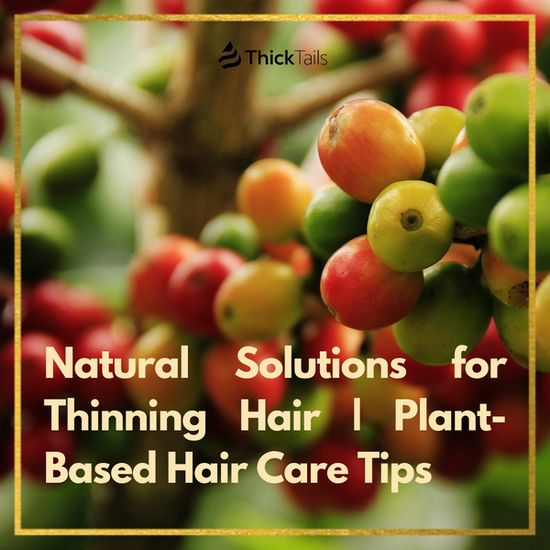As women, we are constantly bombarded with messages about our hair. We're told that we need to have long, flowing locks in order to be considered attractive. But what happens when our hair starts thinning? It can be a real blow to our self-esteem. And unfortunately, many women experience thinning hair as they get older. However, there is hope! Increasing your protein intake can help combat thinning hair. In this blog post, we'll explore the link between protein and hair health, and give you some tips on how to get more protein into your diet. Keep reading to learn more!
What is protein and why is it important for our hair health?

Protein is an essential part of the human body, being responsible for supporting growth and development. It plays an especially important role in hair health, as it helps build keratin, the fibrous protein that makes up our strands. Protein provides amino acids and is required for cell renewal and new hair growth. A diet with insufficient dietary protein intake can result in dull, brittle hair that may have difficulty growing or maintaining its volume due to a lack of necessary nutrients. Therefore, it is important to ensure that your diet contains enough protein so that your hair is strong and healthy.
How can a lack of protein lead to thinning hair in women specifically?
A lack of dietary protein can lead to hair loss in women due to the role that protein plays in producing keratin, a key component of hair. Protein deficiencies can cause sudden or continuous hair thinning, which is exacerbated by inflammation associated with dysfunctional nutrient absorption. Additionally, adequate consumption of essential fatty acids such as those found in fish and nuts are needed for strong and healthy hair follicles and strands. Women need more of these nutrients than men, making them even more susceptible to hair thinning from insufficient protein levels. Furthermore, women may be unknowingly contributing to their own deficiency due to diets containing low amounts of meat and other sources of protein or highly restrictive calorie diets. Taking proactive steps like tracking daily protein intake while supplementing as necessary can help maintain healthy levels and combat thinning hair caused by nutritional deficits.
What are some good sources of protein that women can include in their diets to promote healthy hair growth?
For many women, healthy hair growth is an important part of self-care and beauty practices. Protein plays a major role in promoting healthy hair as it helps stimulate follicle cell production and maintenance. There are a variety of excellent sources of protein that women can include in their diets to ensure they are providing their bodies with the necessary nutrition to promote optimal hair growth. These sources may include eggs, fish, tempeh, yogurt, nuts, legumes such as beans and lentils, soy milk, quinoa, or peanut butter. Incorporating these sources into daily meals can help women meet their recommended daily requirement of approximately 46 grams of protein per day for adult women - an essential part of maintaining healthy hair.
Are there any other factors besides diet that can contribute to thinning hair in women?
Thinning hair can be an uncomfortable and embarrassing experience for many women. However, there are several other factors that can contribute to this condition beyond diet and overall nutrition. Stress can be a major contributor as it often leads to hormonal changes which can affect the body’s ability to produce healthy hair. In addition, medicines such as birth control pills, drugs for arthritis and depression, or even excessive amounts of vitamin A have all been linked to thinning hair in women. Finally, practices like over-brushing, frequent dying or bleaching of the hair, and regular heat styling with blow-dryers or straighteners may all cause long-term damage that could result in female hair loss. Ultimately, understanding all potential causes of thinning hair can help individuals take proper steps to protect their locks from further damage.
What treatments are available for women who are experiencing thinning hair due to protein deficiency or other causes?

For women experiencing thinning hair due to protein deficiency or other causes, there are numerous treatment options available. Perhaps the most common solution is a change in diet - aiming for an increased intake of the proteins required for healthy hair growth. Additionally, some medical and surgical treatments are available which can improve circulation in the scalp and help produce thicker, stronger hair follicles. Such treatments include low-level laser therapy (LLLT) and platelet-rich plasma (PRP), as well as nonsurgical solutions such as micro-needling and topically applied medications. Of course, it is important to take a holistic approach to both treating and managing conditions such as protein deficiency while ensuring that all potential underlying causes are addressed appropriately.
In conclusion, protein is an important component of healthy hair and scalp health. Inadequate protein in a woman's diet can lead to thinning hair due to lack of growth and breakage. Fortunately, increasing dietary protein intake is a simple and effective way to promote hair health and prevent thinning hair. Additionally, there are many other factors such as hormones, stress, lifestyle, and genetics that can contribute to thinning hair in women. If dietary changes do not improve the condition of your hair, it is recommended that you seek medical advice from a doctor or dermatologist for suitable treatments for the specific causes of your thinning hair. No matter the cause though, ensuring adequate daily protein intake should be a priority so that our hair can look and feel its best!











